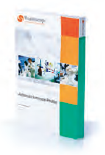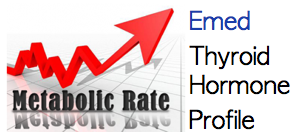Description
Coeliac disease affects 1 in 100 Australians, and is one of the world’s most under-diagnosed diseases. The disease affects both sexes and it can begin at any age, from infancy (as soon as cereals are introduced) to later in life.
Coeliac disease is an autoimmune disease, meaning it is caused by the body’s own immune system mistakenly attacking healthy cells, organs, or tissues in the body that are essential for good health. In a person with coeliac disease, eating gluten, the protein component of grains like wheat, rye, barley and oats, causes inflammation of the small intestine, the part of the digestive system responsible for absorbing nutrients from the diet.
When the lining of the small intestine is damaged, nutrients like calcium, iron, folic acid and fat-soluble vitamins are not absorbed properly. Sugars, proteins and fats may also be poorly absorbed. Malnutrition, osteoporosis, depression and infertility are just some of the problems that can develop if the disorder is left untreated.
Early detection of Coeliac disease is essential because complications and progression are preventable if patients adhere to gluten-free diets.
Symptoms
Coeliac disease is difficult to diagnose because it is not often characterised by specific complaints. Different people may experience different symptoms. The most common symptoms in adults include:
- Anaemia (iron deficiency)
- Bloating and flatulence
- Diarrhoea or constipation
- Fatigue, weakness and lethargy
- Nausea and vomiting Stomach cramps
- Weight loss
DNA Testing
There is clear evidence of a family tendency toward coeliac disease, with 5-10% of the first-degree relatives (i.e. parents, siblings or children) of diagnosed coeliac patients developing the disease.
The genetic inheritance of coeliac disease is strongly associated with genetic markers that code for HLA DQ2 and HLA DQ8, with more than 99% of all patients with coeliac disease having one or both genetic markers.
This simple blood test will provide a definite answer that could change your health indefinetly.
How Does Coeliac Disease Develop?
Coeliac Disease develops in >99% of persons with HLA DQ2 or DQ8 haplotypes. tTG alters dietary gluten in wheat, barley and rye. Altered gluten peptides form molecular complexes with DQ2 or DQ8 molecules that activate T cells.
This leads to inflammation and loss of intestinal finger-like projections (villi), resulting in reduced nutrient absorption.
What Does the Cost Cover?
The Initial website cost covers the lab processing, interpretation and collation of final results into your personalised comprehensive report.
There are no extra fees to be paid.









